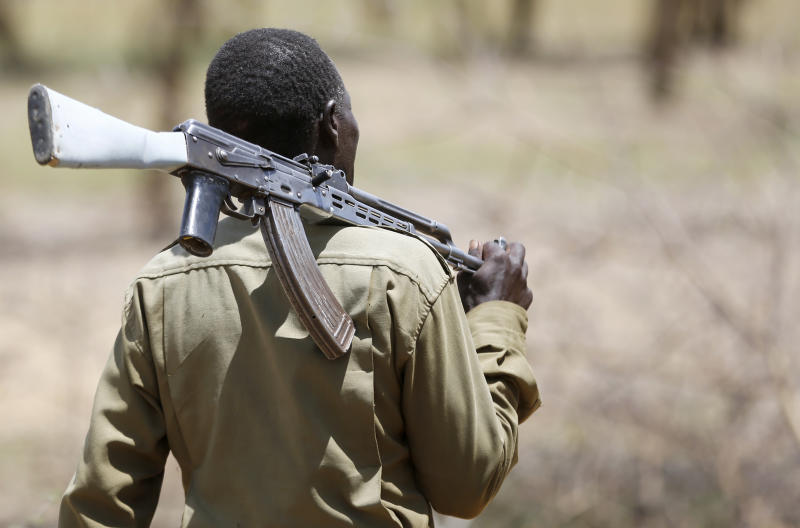×
The Standard e-Paper
Join Thousands Daily

An armed Pokot Man spotted at Kapau in Tiaty, Baringo County on November 10, 2017. Some youth have reformed, downed their guns and are engaged in farming. [Kipsang Joseph, Standard]
Even the beauty of the scenic Kerio Valley has been unable to silence the guns, with each sound of a blazing muzzle leaving behind a scar, a tale and in many cases a fatality. Those who survive this ultimate outcome are left with wounds both physical and emotional.